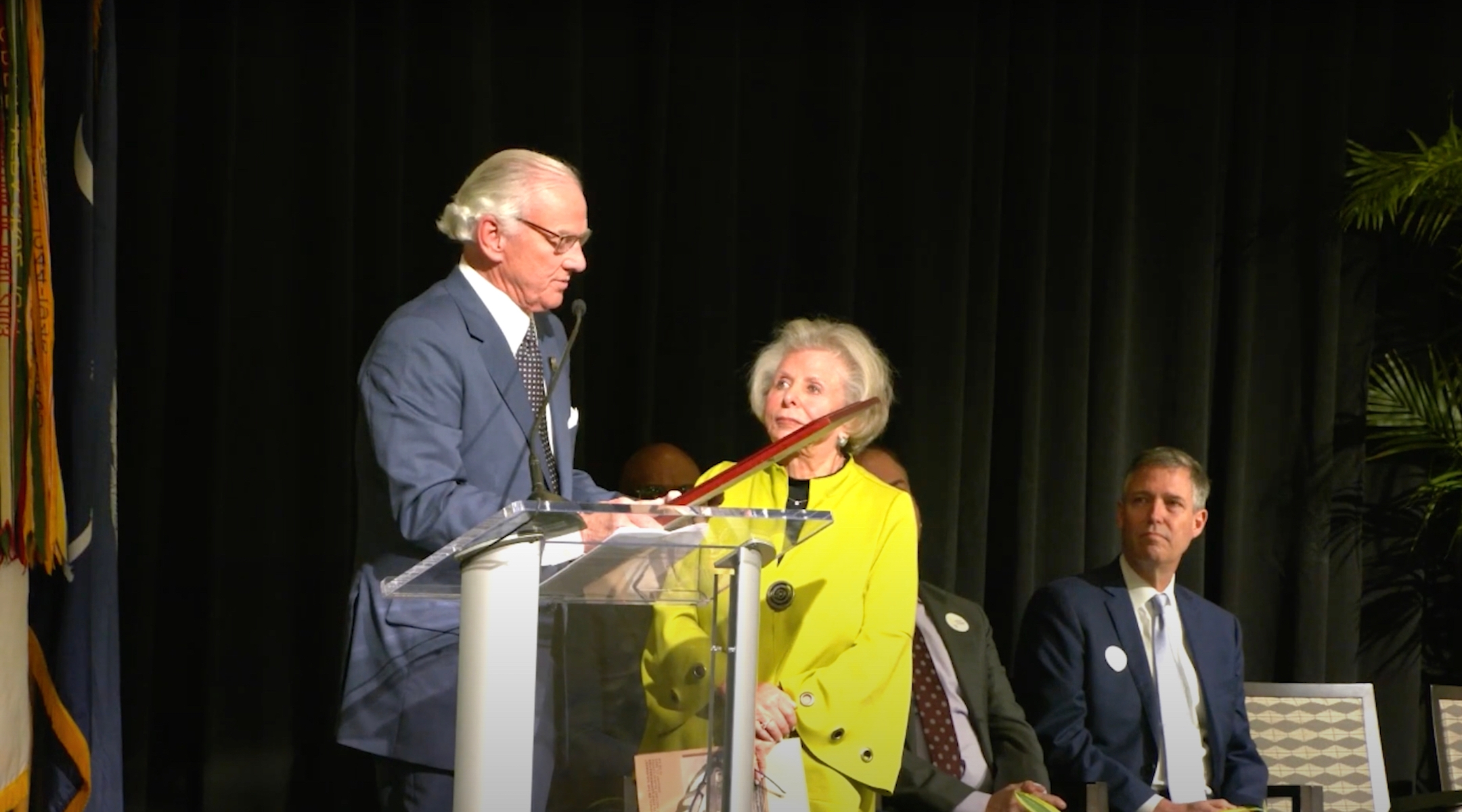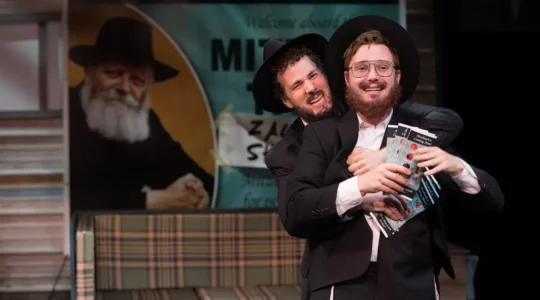At least one member of South Carolina’s Holocaust education council has resigned after the group’s chair edited a rabbi’s “political” speech commemorating the liberation of Auschwitz out of the event’s TV broadcast.
But the council chair said in an interview that she stands by her decision, and said Rabbi Sam Rose’s speech tying the Holocaust to modern-day U.S. policies on refugees, LGBTQ people and book bans was inappropriate for the event.
In South Carolina, a Republican-controlled state, the members of the state’s Council on the Holocaust are all politically appointed — which the chair was keenly aware of when she cut the speech. The state’s Republican governor, Henry McMaster, also intended the event.
“I felt that we needed to be more courteous to our political appointment[s], and to our politicians who wanted to use this as a teaching event,” board chair Lilly Filler said about her decision to cut the speech from the state public TV station’s rebroadcast of the Auschwitz commemoration.
“This was a political attack, slight, on our government here, our state officers,” Filler said. “They have been wonderful to us. They support us in everything that we do. I’m not going to put politics into what I’m doing, and we stay away from politics.”
The controversy reflects a debate over whether memorializing the Holocaust properly should involve addressing contemporary issues and injustices.
An OB/GYN and daughter of Holocaust survivors who has served as chair of the South Carolina Council on the Holocaust for the past eight years, Filler said she made the call to cut Rose’s speech out of the broadcast herself. She said she objected not to what he said, but to where he said it: in a televised statewide event focused on memorializing the Holocaust, with the state’s Republican governor and other officials in attendance.
“I didn’t invite him to just discuss whatever he wanted,” she said, adding that she’d even instructed Chuck Todd, the Jewish political journalist for NBC and the evening’s keynote speaker, to avoid politics. “I think everybody should speak freely, but you have to use good sense in timing and in place when you do that.”
She said she’d invited Rose to deliver a final Mourner’s Kaddish primarily because his congregation was in Greenville and she wanted Jewish clergy from across the state.
Her explanation didn’t sit well with Melinda Menzer, a fellow descendant of survivors and professor at Furman University in Greenville. On Monday, Menzer resigned from the council’s 12-member board, objecting to the cutting of Rose’s speech.
“I’m really heartbroken about this,” she said. “Our job is to help South Carolinians recognize the relevance of the Holocaust, and I believe Rabbi Rose was talking about that.”
A congregant of Rose’s at Temple of Israel, Menzer said Rose had told her he would address “contemporary issues” during his benediction, but that she hadn’t known anything more than that. “I told him that he was a rabbi, and that was just fine with me. That’s what rabbis do,” she said. At the event, Menzer said she “was moved” by Rose’s remarks.
After reciting the Kaddish, Rose spoke of a “resurgence of hate, of antisemitism, of prejudice, of discrimination,” and, in an apparent reference to the Trump administration, criticized policies “refusing aid of any kind to refugees.” He also denounced classroom book bans; South Carolina is one of the leading states for book challenges.
Initially, when those remarks were cut for subsequent broadcast on South Carolina ETV, the statewide PBS affiliate, Menzer didn’t suspect the council was behind the decision — Filler had not consulted the board. Learning the council chair’s role in the decision left Menzer feeling “betrayed.”
From Filler’s perspective, betrayal was all she could feel as Rose delivered his speech. “It was a fabulous program, until Rabbi Rose chose to grandstand,” she said, adding that McMaster, next to whom she had been sitting, was making “uncomfortable movements.”
Filler offered a hypothetical: if Rose had used the ceremony to accuse Israel of committing genocide, drawing a comparison between Israel and the Nazis that has become increasingly common on the left since Oct. 7, 2023, “would not half the audience, at least, be furious?”
The possibility that the council, which distributes Holocaust education materials to educators throughout the state, could lose the support of the state government was top of mind for Filler as she considered the possible fallout from Rose’s speech.
“We are very lucky here in the state of South Carolina to have politicians that have been at our side at all,” she said. “We have made great inroads in this state with Holocaust education. And we sincerely hope that the state will continue their support of us.”
Speaking to the Jewish Telegraphic Agency last week, Rose denounced both the council and ETV as cowardly, and defended his decision to use the Holocaust ceremony to reflect off on contemporary issues.
“There was no way that I was going to allow for these public officials to be self-congratulatory and to use this event as a platform for moral licensing, where they’re going to justify their discriminatory behavior towards other groups of people, while congratulating themselves and writing state proclamations about Holocaust education,” he said.
Filler is ending her term as board chair this June, at the conclusion of her eighth year. For one of her final publications through the council, she said, she will be tackling the subject: “Teaching the Holocaust in a complicated world.”
JTA has documented Jewish history in real-time for over a century. Keep our journalism strong by joining us in supporting independent, award-winning reporting.






